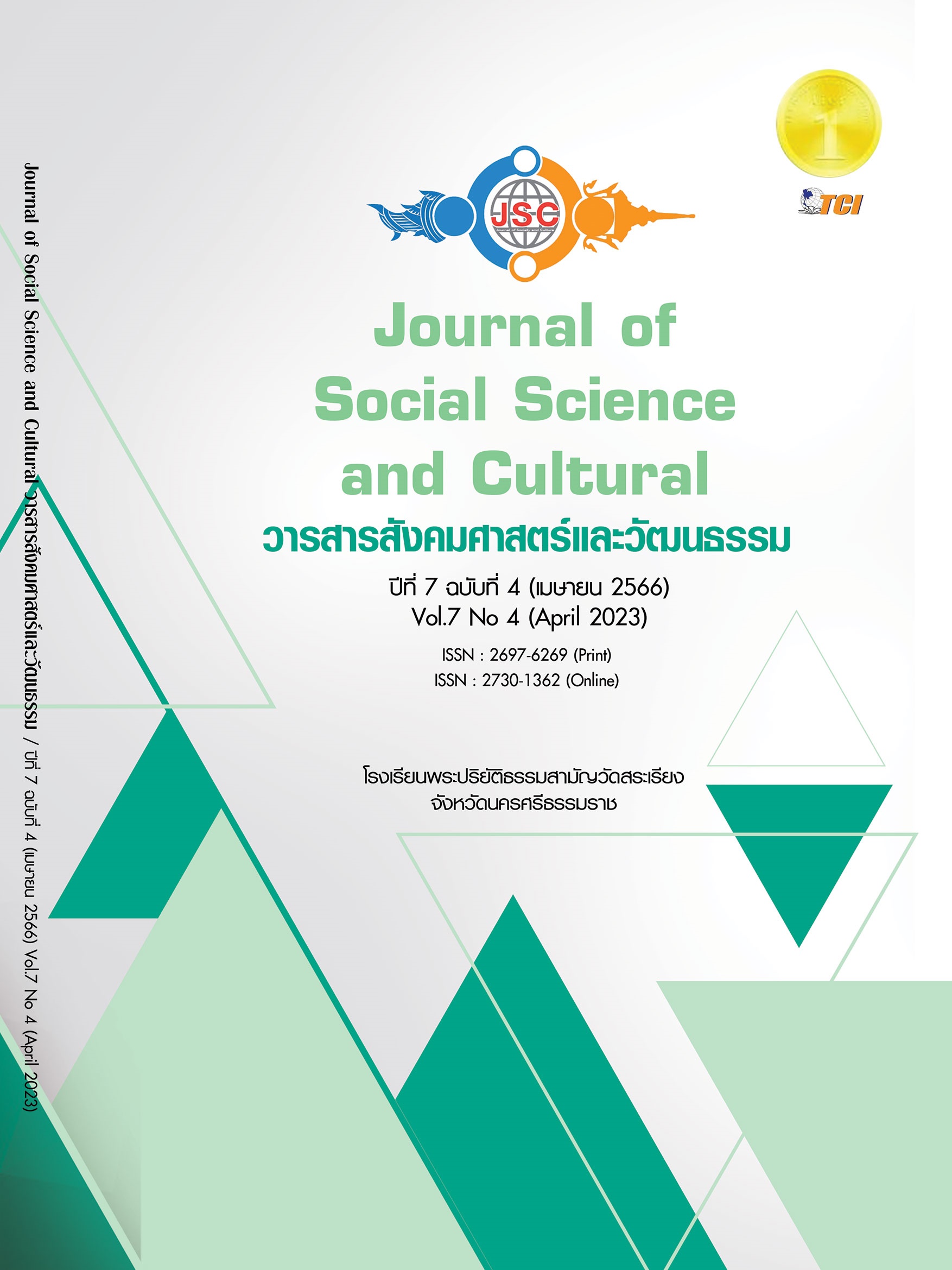THE ANALYSIS OF THE PRESENT SITUATION OF CHINESE STUDENT’S MENTAL HEALTH PROBLEMS: THE CASE STUDY OF FOUR CHINESE’S UNIVERSITIES
Main Article Content
Abstract
This research aims to analyze the psychological health problems of Chinese college students during the Covid-19 epidemic from four universities located in northern, central, western, and southern of China; and proposes teaching methods for students' mental health to strengthen the environmental system for solving mental health problems and make recommendations to university administrators to address students’ mental health issues most effectively. The target group of the study was students from grades 1-4 in four public universities, with a target group of 122,344 people. The researchers collected 118,684 online questionnaires, accounting for 99.45% of all questionnaires. Then organize the data through Microsoft Excel programs and analyze the statistical data through SPSS Python and HiveSQL tools, classify the required issues into target groups, and then classify the concept of mental health issues into level 1 serious mental problems, level 2 mental problems, and level 3 mental problems. The problem of job stress among students is considered the most serious, followed by the pressure of studying and adapting to universities. Based on the results of the above study, the researchers recommend appointing a mental health expert as a consultant. Or have a mentor observe the symptoms of students and provide good advice on their psychological state. Or have a friend help. The counselor must have a face-to-face conversation with the student. If any abnormality occurs, the parent should be notified immediately. Collect the students' information for further intervention and treatment. Ministry of Mental Health Education.
Article Details
References
Fang, X. et al. (2018). Development of the Mental Health Screening Scale for Chinese College Students. Psychological and Behavioral Research, 16(1), 111-118.
Jiang, G. R. (1996). Theoretical Analysis on the Research on Mental Health Standards (关于心理健康标准研究的理论分析). Education Research Test, 3(1), 49-54.
Kaiser, H. F.& Rice, J. (1974). Little Jiffy, mark IV. Educational and psychological measurement, 34(1), 111-117.
Li, H. H. (2021). The current situation and characteristics of mental health of college students from single-parent families—Based on a survey of colleges and universities in Jiangsu Province (单亲家庭大学生心理健康现状与特点—基于江苏省高校的调查). Journal of Jiangsu Second Normal University, 6(37), 107-111.
Lin, A. et al. (2015). The Survey and Analysis on the Mental Health Status of College Students (大学生心理健康状况调查与分析). Ideological and Theoretical Education, 5(1), 89-92.
Nunnally, J. C. & Bernstein, I. H. (1978). Psychometric Theory. New York: McGraw-Hill.
Spindler, M. . (2019). High-conflict-divorce and personality disorder. Praxis der.Kinderpsychologie und Kinderpsychiatrie, 1(9), 733-750.
Wu, J. H. et al. (2020). Practical application of psychological census in the mental health work of higher vocational colleges—Based on the analysis of the results of college students' mental health screening scale. Journal of Jiangxi Electric Power Vocational and Technical College, 9(33), 103-104.
Wu, M. L. (2003). SPSS Statistic in Practice (SPSS 统计应用实务). Beijing: China Railway Press.
Zaltman, G. & Burger, P. (1975). Marketing research: Fundamentals and dynamics. Illinois: Dryden Press.
Zhang, Y. B. & Liu, B. (2019). Research on the correlation between mental health and mental flexibility of college students (高校大学生心理健康与心理灵活性的相关性研究). Chinese Journal of Health Statistics, 2(1), 252-254.
Zhao, J. (2018). Building and Management of College Students' Mental Health Archives (高校学生心理健康档案的建设与管理). Times Finance, 39(11), 286-288.


